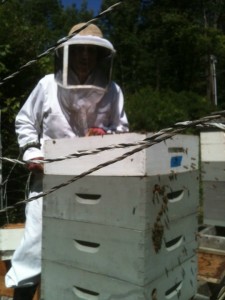
I’m less concerned about the bone loss of osteoporosis than I am with the ossification of my brain.
Osteoporosis is another one of those diseases that can be largely prevented with the same good health habits of diet and exercise we’re supposed to be following to prevent heart disease, obesity, diabetes and certain cancers. That’s the theory, anyway.
Ossification is something entirely different, when a person stops learning and allows the brain muscles to stiffen. An early symptom of cranial calcification is using language that’s thirty years out of date, like referring to marijuana as dope instead of weed, or thinking that hooking up is something you do with a fish. But the sure sign of a brain turning to stone is refusing to learn the rudimentary uses of technology. Links, after all, are not just sausages, parts of a chain, or sections of a golf course; they’re also what you click to find out what twerking is and to watch funny cat videos on Facebook.
Even though I’m a self-described fogey who reads newsprint, writes thank-you notes and answers the telephone, I love the internet and consult it every time I finish knitting a sock and have to perform the Kitchener stitch. But it’s also a source of a whole new world of knowledge, like the use of contemplative practices in education, restorative practices in criminal justice, and the whole new world of gender fluidity.

Sometimes keeping up with technology is harder than keeping up with cultural trends. Resistance to learning how to use gadgets only accelerates hardening of the brain. My personal prescription is a “need to know” attitude for electronics – a system that works pretty well. For instance, I assumed a blue tooth was a new dental procedure until I took possession of a new car, and now I know how to make hands-free phone calls and download audio books from the public library before heading out on a long drive. As email has supplanted snail mail, I’ve learned how to pay bills and do banking on line. And to my utter amazement, I use the camera on my smart phone all the time, even though when it was first introduced, I wondered why anyone would need a camera on a telephone.
It turns out, there are lots of uses: When someone shows me a good book they recommend, I snap a photo. When a client mails me a check for services rendered, I photograph it and deposit it from home. I video chat with my Californian relations. And best of all, I can use the thousand-word advantage of a picture instead of trying to type all those words on my phone’s itty-bitty keypad.
But these are skills and knowledge that only help me function in the world as it is now, which is not quite the same as preventing cerebral ossification. To do that requires brain work of the use-it-or-lose it variety.
For most of my adult life, I thought I’d be fine if I just kept reading. I was wrong. Through my professional life teaching humanities courses, reading served me well. And when I’m researching something specific for an article or a book, I’m flexing my brain muscle. But there’s so much more than I can learn on my own, so I found help. Last spring, I signed up for a course through the Osher Lifelong Learning Institute.
Osher offers non-credit courses specifically developed for seasoned adults aged 50 or older who are interested in learning for the fun of it. Osher courses are offered in all fifty states; in Vermont, classes are taught in ten locations as well as on-line. I attended The Biology of Insects at an Osher Center near my home, taught by Bob Engel, a professor at Marlboro College.
Because I’d taught literature courses at this location a few years ago, I felt awkward returning as a student. I’m not retired, as is most of the audience. But I wanted to learn, just like these elders, who lead busy intellectual lives attending lectures, reading clubs, playing instruments, singing in ensembles, traveling, and generally doing an impressive job of exercising their brains even as many have had to adapt to diminished hearing, eyesight and mobility. Rather than allow the pride of relative youth hinder me, I adopted a sense of pride at being accepted by these life-long learners – who had a thing or three to teach me.

It also happens I have an increasing interest in insects. I kept honeybees for over twenty-five years, until a black bear visited my hive one too many times. Now, I’m learning to fly-fish as a practical use for my interest in entomology. I’m at the start of a journey of learning about my environment from a vantage point more intimate than from a passing car, or even as an avid gardener who is perhaps too eager to identify insects as pests.
We have a lot to learn from the insect world – knowledge that has the potential to advance medical cures and retard climate change. But perhaps what’s most important for us to learn is how quickly insects adjust to changing conditions. There’s an entire phylum of arthropods – insects with exoskeletons – but they’re not boneheads. They don’t just undergo metamorphosis; they adapt.
####
Deborah Lee Luskin is the author of the award-winning novel, Into the Wilderness, a love story between people in middle age. Learn more at www.deborahleeluskin.com
Adapting–yes! We must keep pressing in and embracing the new–if only it wasn’t new again about every week or so!